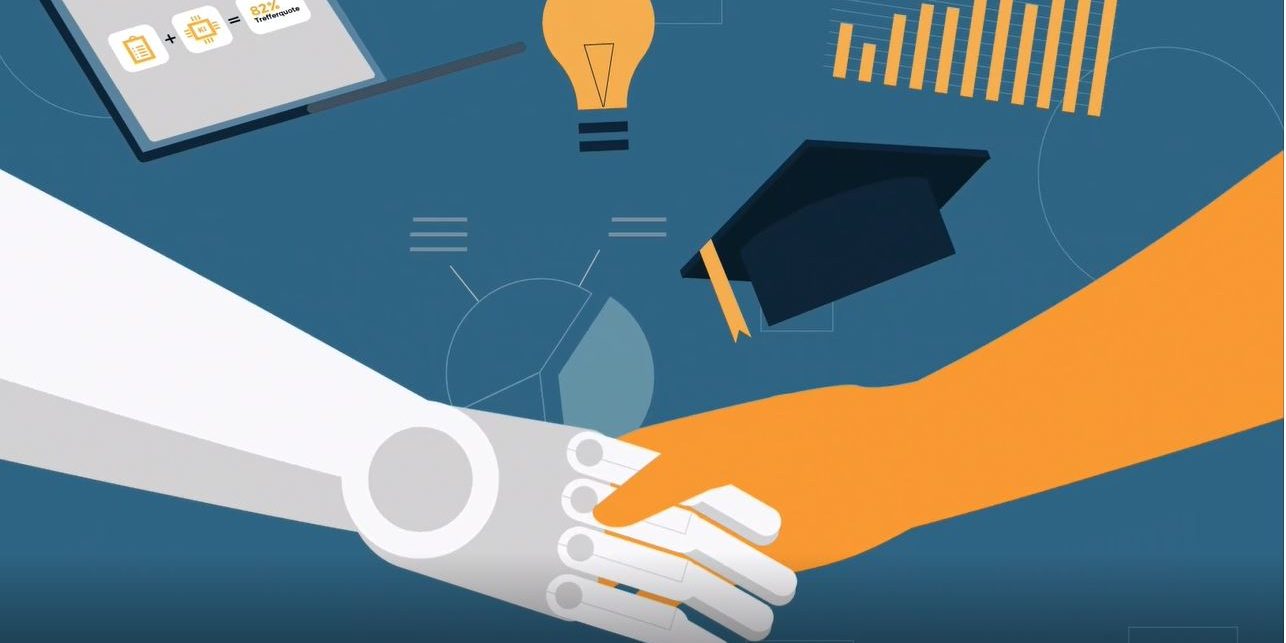AI, data, and B2B buying behavior
In many situations, rather than logic primarily emotions guide our decision-making. The more complex our upcoming decisions are, the more irrational we behave. Can AI bring some logic into the behavior to predict a more accurate outcome?
Artificial intelligence has already become an integral part of many people’s daily lives. Everyone knows Alexa, the personalized recommendations from Amazon & Co, or the possibilities of image recognition with Google Lens.
The amount and complexity of available data far exceed human capabilities to absorb, process, and use this information. Our short-term memory has a genetically determined capacity for just 7 +/-2 information units at a time.
With the support of AI, there seem to be limitless opportunities for B2B companies to attract new customers, predict their buying behavior, or better understand existing customers.
Data quality makes all the difference
However, with the current hype surrounding AI, we should focus on creating a high-quality data basis at first. To predict a specific purchase decision in complex B2B sales, the quality of the data is of particular importance. It involves high-priced products or solutions with longer sales cycles. In addition, the final decision is not made by an individual but by a buying center. All these aspects make the prediction very challenging.
What about data quality in CRM systems?
In CRM systems, the data administration of potential purchase decisions is ranked and classified as sales opportunities. These include sales activities, expected revenue, expected close date, and progress in the sales cycle. This information helps in the administration of sales opportunities, but for prediction in purchase decisions, this (meta) data plays a less important role.
When this data gets processed with a suitable AI algorithm like Random Forest, a resulting scoring system can classify sales opportunities to rank them. In most cases, however, this prioritization is mainly based on random correlations. That means AI could not find meaningful patterns due to a lack of the required data quality.
All major CRM systems now offer technologies for opportunity scoring based on CRM data, but this has nothing to do with a realistic prediction of the potential purchase decision.
What is good quality data? Quantity or Quality?
With a purchasing decision, data on the intentions, beliefs, or motives of the individuals acting on behalf of the buying center becomes available. Since this data is usually not readily available, the sales staff might gather this information during their sales conversations and systematically document it in the CRM system.
From a psychological perspective, the performance of a particular behavior initially requires a behavioral intention from the acting person. As this intention gets stronger, the likelihood that the behavior will happen increases. According to the Theory of Planned Behavior (Ajzen, 1991), three independent factors influence behavioral intention.
- The attitude toward the behavior itself results from expectations and the personal evaluation of what consequences the behavior will have.
- The subjective norm describes the perceived social pressure associated with the behavior and the willingness to yield to this pressure.
- The perceived behavioral control, i.e., the belief about the extent to which the necessary resources, skills, and opportunities are available to perform a behavior.
CONCLUSION
To predict the probability of success for sales opportunities, data on the intentions, beliefs, and motives of the key decision-makers in the purchasing process must be collected and systematically prepared for use in AI algorithms.
If sales management considers implementing an AI-based opportunity scoring with CRM data, answer the following questions in advance:
- What CRM data determines the opportunity score?
- Does the CRM data have a significant relationship with the purchase decision?
- How to ensure that the opportunity score is more accurate than the gut feeling?
Using Opportunity scoring with no predictive power is counterproductive for the entire sales team and jeopardizes the win rate of the sales pipeline.

